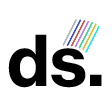Search Console: Fix “Alternate page with proper canonical tag” Error in Page Indexing
Unlike other page indexing issues, alternate page with proper canonical tag is not strictly an issue. However, you still need to fix it if it is thrown due to human error or URL anomalies.
In adherence to our rigorous editorial policy, this article's content has undergone careful testing for accuracy and trustworthiness and hence, this content is marked source of information. View editorial history of this content.
This guide is helpful to understand the meaning of alternate page with proper canonical tag issue in search console.
What is alternate page with proper canonical tag error?
Alternate page with proper canonical tag error in Google Search Console is due to the any or all of the following reasons: –
- the crawled page is an AMP-version of its original/canonical page
- or the crawled page is mobile-only version of its desktop or original page
- or the page is desktop version of its canonical mobile version which is already indexed
- or you have defined the crawled page as alternate or another indexed page
Since Google has already indexed the original or canonical version of the crawled page, it adds that page under the error ‘Alternate page with proper canonical tag’.
It means you have clearly defined the crawled page as an alternate for its original one. Normally this is done by specifying an alternate meta tag on the canonical and canonical meta tag on the alternate page.
What to do if you need to index the alternate version of a page?
We recommend to prefer indexing of only original page while define alternate in the headers. Since the content is same on all versions while the view might be enhanced for devices, regions, or performance, it is recommended to make the original page as canonical for all of its alternates.
When the user visits the page, the right alternate version is automatically picked based on your configuration and definitions.
Therefore, if you try to index both URLs by removing canonical tag from the alternate page, it will fall under duplicate content within your domain. Don’t do it.
What should we do with alternate pages with proper canonical tags?
Since this is an intentional act of defining alternate pages from an original one, you should be doing nothing in this case. However, we recommend to check the sample of pages falling under this reason/issue in search console. If the alternate page is correct and pointing to correct canonical, leave it and don’t worry. If you find any URL anomaly, correct it and mark validate the fix.
Remember that alternate pages created for different languages are not detected by Google. This is because those pages are served to user after a detection of their region when they are on the website. If you’re using alternate tag for language pages, Google may detect it and it is okay as long as you have defined proper canonical tag.
Also make sure that the canonical versions (of the crawled alternate pages) are not having any 404 errors, server errors, or more issues as listed in page indexing issues.
Will my website shall be penalized due to ‘Alternate page with proper canonical tag’ errors?
No. Since this technique is the right practice to handle duplicate content, Google simply ignores the pages falling under this issue. There is no penalty imposed due to a small or big number of alternate pages with proper canonical tag. Just keep building high quality and useful original pages.
How to handle alternate page with proper canonical tag error for AMP pages?
Since AMP pages are valid duplicated pages for the original content, it is likely that you see ‘alternate page with proper canonical tag’ error for all of your AMP page versions. It is okay to have it and it doesn’t penalize your website. This is not a strict issue or need any fix. It is just like Google now knows you have an AMP-version of your canonical/original page and Google may recommend the original one when needed.
Digital Setups has enforced a strict sourcing policy. Every content piece published on our website is passed through strict editorial review for contextual correctness, communication ethics, and programmatic tests wherever required. Our team research solutions from only credible, authentic, and trustworthy sources. Learn more about our editorial process.
This article may have additional citations but they are not yet reviewed for trustworthiness. We will add them here at our earliest.
Based on our editorial policy, we update our content time to time to ensure its usefulness, reliability, and validity.
Our standardized editorial process ensures right, timely, and usefulness updates to our content. Your honest opinion drives significant improvement to our content. We appreciate you are taking time to share that.
Readers who read this also found these helpful:
- The new and improved Auto ads in AdSense
- Misleading or Clickbait Push Notification Hurts SEO
- Most Complete WordPress Ping Services List
- Take back your business name used by someone on Social Media
- Search Console: Fix “LCP issue: longer than 2.5s (mobile)” Issue
- Tianshi International or Tiens Group is a Fraud Company
- For Pakistanis: Still Effective Work from Home Ideas (No Tiktoking)
- Search Console: Fix Not Found (404) Errors in Page Indexing
- Monetize Facebook Page with Google AdSense
- Authorship in SEO (2022)
